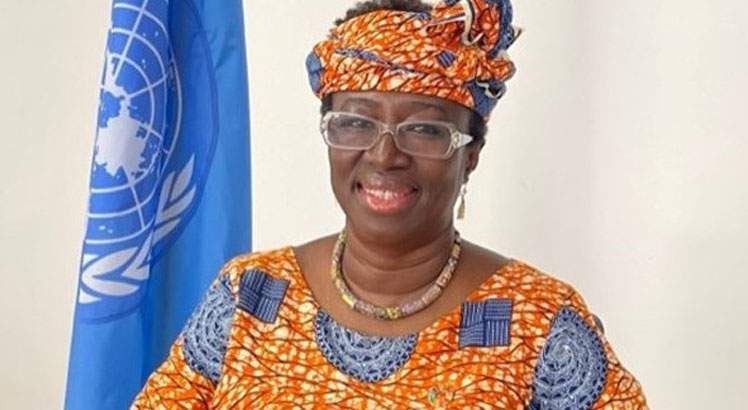‘Malawi can end poverty’
Malawi is among the world’s 46 Least Developed Countries (LDCs) expected to graduate from poverty by the deadline of the Doha Programme of Action (DPoA) in 2030. The decade-long action plan seeks to put the countries lagging behind back on track to achieve Sustainable Development Goals. Our Staff Writer PRECIOUS KUMBANI engages United Nations resident coordinator Rebecca Adda-Dontoh on how Malawi can graduate from the unenviable Group of 46. Excerpts:

What is the Doha Programme of Action all about?
For the past decade 2011 to 2020, progress towards the development goals for LDCs was uneven. This raised concerns that the LDCs remain marginalised in the world economy and continue to suffer from extreme poverty, inequality and structural weaknesses. The delegation attending the LDC5 conference in Doha-Qatar in March 2023 strongly committed to the implementation of the Doha Programme of Action throughout the coming decade, including its six priority areas, and to advancing the concrete deliverables outlined therein.
What are some of these priority areas and key takeaways for LDCs?
These include the need to accelerate poverty eradication, including extreme poverty, hunger and malnutrition; advance human development and provide equal opportunities for all, with special attention to the poorest and most vulnerable, including women and girls in order to leave no one behind.
The LDCs also need to formulate comprehensive national regulatory frameworks, sustainable and resilient physical infrastructure, inclusive digital ecosystems, and effective policies that accelerate the achievement of Sustainable Development Goals [SDGs], reduce all types of inequalities, and build resilience against shocks among others.
What can Malawi do to attain these goals?
For Malawi, the Doha Programme of Action systematically aligns with Malawi2063 Agenda and the desire to be an inclusively wealthy and self-reliant industrialised upper-middle-income country by the year 2063. The Doha action plan offers a viable pathway to strengthening national efforts to: eradicate poverty and build capacity to leave no one behind; leverage the power of science, technology, and innovation to fight against vulnerabilities; support structural transformation as a driver of prosperity; enhance international trade and regional integration; address climate change, environmental degradation, recover from Covid-19 pandemic and build resilience against future shocks for risk-informed sustainable development; and mobilise international solidarity, reinvigorate global partnerships and innovative tools and instruments towards sustainable graduation to a middle-income country.
Is Malawi doing enough in fulfillment of the Doha Plan of Action?
Post-LDC5 Conference, I commend the Government of Malawi for the commitment that has been shown in taking the DPoA forward. At this juncture, it is important that we move from mere rhetoric to affirmative and prompt actions taking advantage of the global momentum that the conference created to effectively mainstream and implement the DPoA in line with the Malawi 2063 and its first 10-year implementation plan.
What support does Malawi need in its effort to implement the Doha blueprint?
I would urge the government to take advantage of the upcoming global events such as the High-Level Political Forum, the 78th Session of the UN General Assembly and the SDG Summit to generate much-needed support for Malawi by showcasing priority areas for investment and policy change in line with the DPoA and the other agendas that will help secure maximum progress across the SDGs.
It also needs to engage stakeholders to strategise on advancing the implementation of the DPoA in Malawi, and explore how all the development actors can help the Government in mobilizing support (both technical and financial) taking advantage of existing global, regional and national support pledges by partners to overcome structural challenges, eradicate poverty, achieve internationally agreed development goals and enable graduation from the LDC category.
How is the UN supporting Malawi to graduate from the LDCs category?
The UN is committed to supporting Malawi in accelerating the implementation of the LDC development agenda by mobilising local and international support for effective implementation, coherent follow-up and monitoring. The UN will also help raise awareness about the economic, social and environmental potential that exists in Malawi and ensure that the pressing needs of the people of Malawi remain high on the national and international agenda.
Does the private sector have a role to play in achieving these efforts?
The private sector, civil society, media, academia, and other development actors need to support the achievement of aspirations set out in the Malawi 2063 and the 2030 Global Agenda. I am optimistic that our collective efforts will go a long way in addressing Malawi’s socioeconomic challenges and put the country on a sustainable path toward becoming an inclusively wealthy and self-reliant industrialised upper-middle-income country.





